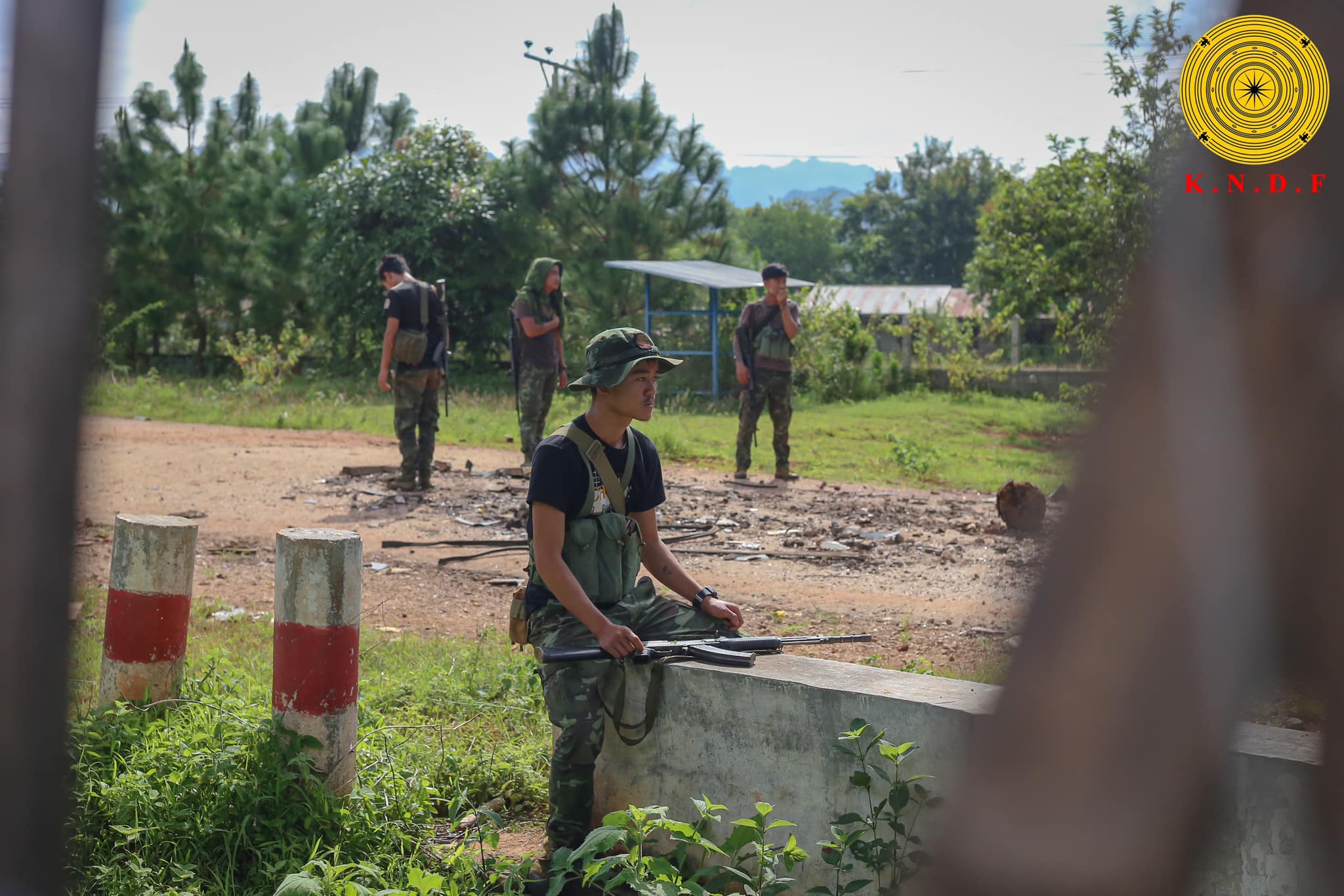Amid ongoing clashes in Karenni State, two Karenni organisations said their Tuesday assault on army troops in Mese Township was the first in a new, parallel offensive intended to support Operation 1027 in Shan State
Esther JNovember 10, 2023

Karenni armed organisations referred to an assault on a junta outpost in Mese Township, Karenni State this week as the start of “Operation 1107,” signalling support for the ongoing Operation 1027 offensive in northern Shan State.
The alliance of anti-junta Karenni groups, joined by People’s Defence Force (PDF) fighters, overran army positions in Pan Tein village, Mese Township on the Myanmar-Thailand border on Tuesday, spokespersons for two of the groups said.
The armed organisations taking part in the assault included the Karenni Nationalities Defence Force (KNDF)—currently the most powerful armed organisation operating in the state—as well as the Karenni National People’s Liberation Front (KNPLF), the Karenni Army (KA) and the PDF, which operates as the armed wing of the publicly mandated National Unity Government (NUG).
Anti-junta forces seized weapons and ammunition in an assault on army troops stationed at a monastery and school near a Border Guard Force station in Pan Tein, according to the allied anti-junta Karenni groups.
“They established an outpost to provide additional security for the Border Guard Force battalion at the station. Our joint forces initiated Operation 1107 with an attack on that outpost,” KNPLF spokesperson Lawrence Soe said.
A spokesperson for the KNDF referred to Operation 1107 as a major military campaign and as a resumption of operations that began with the takeover of the town of Mese by anti-junta forces in June.
“With this escalation of our operations, we are following the previous offensive and the capture of Mese,” the KNDF information officer said.
The KNDF said Operation 1107 began with the battle and capture of Pan Tein on Monday, November 7, and was named for the date it was launched.
“We, the joint revolutionary forces in Karenni State, continue to support Operation 1027, which is currently being conducted to the north,” he added. “I want to say that we are fighting together.”
Lawrence Soe concurred, saying, ”we launched the offensive under the name Operation 1107 to coordinate with all resistance forces throughout the country.”
However, adjutant general of the KA Col. Phone Naing said referring to the assault by this name was not his group’s choice.
While confirming that his organisation had taken part in the joint takeover of army positions, Col. Phone Naing also noted that the allied Karenni and resistance forces had not succeeded in taking control of the Border Guard Force station after overrunning the nearby army outpost. Junta airstrikes forced the fighters to withdraw before they could seize the station.
Col. Phone Naing confirmed, however, that the KA joins the other Karenni groups in their support for the Brotherhood Alliance’s Operation 1027.
“They are also helping to liberate Burmese people. Because we have the same goal, we encourage them,” said Col. Phone Naing.
KNDF fighters were involved in recent operations in and near Karenni State before the assault in Pan Tein that they chose to mark the start of Operation 1107.
On November 5, only two days before they led the attack on junta forces in Pan Tein, the KNDF carried out a series of assaults on a junta supply convoy travelling from Loikaw towards Mese.
The military has reportedly increased supply shipments to its troops in Karenni State in response to anti-junta groups’ growing strength and territorial control, and the KNDF claims the army has been stockpiling weapons and ammunition in Karenni State since late October to prepare for counter-operations.
The KNDF is also deploying forces outside of Karenni State, which shares a border with Shan State. KNDF Battalion 606 announced in a November 3 statement that it is participating in Operation 1027 in Shan State, with its members joining “battles to capture the junta’s bases” led by the Brotherhood Alliance.
